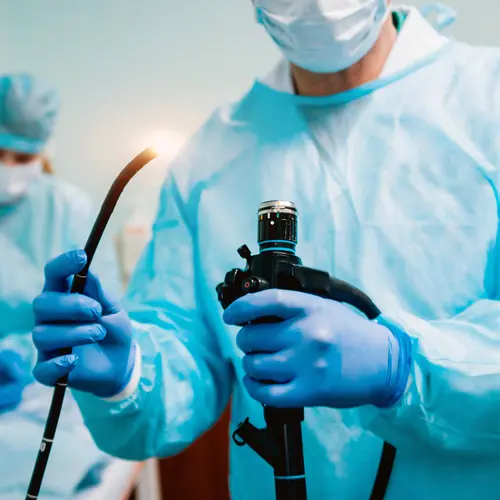You eat a big meal out, late at night. You indulge in seconds and then thirds, have a few too many glasses of wine or cups of coffee, and then go to bed on a full stomach. Wake up a few hours later, and the pain is screaming upward from your chest into your throat. You groan: Sleep is impossible. You finally roll over, get out of bed, and stumble to the medicine cabinet. What can you do to stop heartburn fast?
What Causes Heartburn Symptoms?
Heartburn symptoms, for the infrequent sufferer, are often triggered by certain foods.
"I always ask people if there's a particular type of food that causes heartburn, like spicy foods, or citric or acidic food," says Tara O'Brien, PharmD, a pharmacy manager at Pharmaca in Seattle, a national, integrative pharmacy combining Western medicine with self-care.
When you eat, a cascade of chemicals is released to digest your food. Certain foods can trigger too much stomach acid, causing heartburn -- that burning, irritated feeling in your upper stomach and chest. And if you eat a big, spicy meal and go to bed full, it's a double whammy. Gravity can't work to move food through your stomach. Your food and stomach acid pool at the base of your esophagus. It's one big heartburn ouch.
Lifestyle Tips to Stop Heartburn
If you only have heartburn symptoms every now and then, you're in luck. Simply cutting out the offending foods, or eating less of them, can often prevent heartburn. And when you need heartburn relief and want it fast, there are plenty of over-the-counter antacids you can try.
Just as people with insomnia have to find new ways to go about sleeping, try new ways to go about eating. Begin by paying attention to when, what, and how much you eat. Use these heartburn prevention tips from the American Gastroenterological Association (AGA).
- Avoid food triggers. Certain foods trigger heartburn, but not always, and not in everyone. Check this list of common food triggers to see if any could be causing your heartburn symptoms:
o Fried and fatty foods
o Peppermint, spearmint, and other mint products
o Carbonated drinks
o Orange, grapefruit, and other citrus fruits or juices
o Tomatoes, tomato sauce, and ketchup
o Mustard, pepper, and other spices
- Cut back on alcohol and caffeine. Alcohol and caffeine can irritate the stomach and esophagus and boost stomach acidity. Try cutting back -- or cutting out -- these painful irritants to stop heartburn.
- Try smaller meals. Big meals, big trouble. Try smaller portions to help your stomach digest food, produce less stomach acid, and move food and stomach acid through your digestive system more quickly.
- Eat two to three hours before bed. Late-night snacks are out. Going to bed on a full stomach often triggers heartburn, because food and stomach acids can pool at the base of your esophagus and cause irritation. Try eating earlier, and then let gravity speed the passage of food through your system as you're up and around, before lying down in bed.
- Stop smoking.Smoking is a well-known trigger for heartburn. It's never too late to quit, and you'll probably be pleasantly surprised at how quickly you feel relief from heartburn symptoms.
- Lose weight. Being overweight puts mechanical pressure on your stomach and can slow stomach emptying. That's why pregnancy often causes heartburn. If you're overweight, try losing weight slowly and safely, and see if your heartburn symptoms disappear along with the pounds.
- Cut back on aspirin and pain relievers. Aspirin and most pain medications -- except acetaminophen -- trigger heartburn. Talk with your doctor or pharmacist about alternative pain relief if you're taking these medicines. Or experiment with taking your aspirin or pain reliever at different times of the day -- with meals, after meals, just before bed -- and see if that helps stop heartburn.
Over-the-Counter Heartburn Relief
For that rare attack of heartburn, what can you take?
One way to suppress stomach acid is to take an antacid with calcium carbonate, says O'Brien. "If heartburn is only intermittent, that's usually the first option," she says.
You'll find calcium carbonate in most over-the-counter antacids at the drug store.
Some calcium-based antacids add other ingredients, like magnesium or aluminum, so read the label to see what you're really getting. Common over-the-counter antacids include:
- Tums, which is simply calcium carbonate.
- Rolaids, which adds magnesium to ease the potential side effect of constipation with too much calcium.
- Gaviscon, which is another calcium carbonate product. "This one gives some people better results," says O'Brien.
- Maalox, which adds aluminum to calcium carbonate and comes in liquid or tablet form.
Antacids are fast-acting but also short-acting, says the AGA, so they're less useful for frequent or severe heartburn and don't work well as a preventive measure.
Call Your Doctor or Pharmacist If:
- You're using more than an antacid package directs.
- Your symptoms aren't relieved, no matter what you do.
And remember: when it comes to food, a little goes a long way. You can stop heartburn with small meals and snacks -- and hold the pepperoni pizza and cappuccino.

